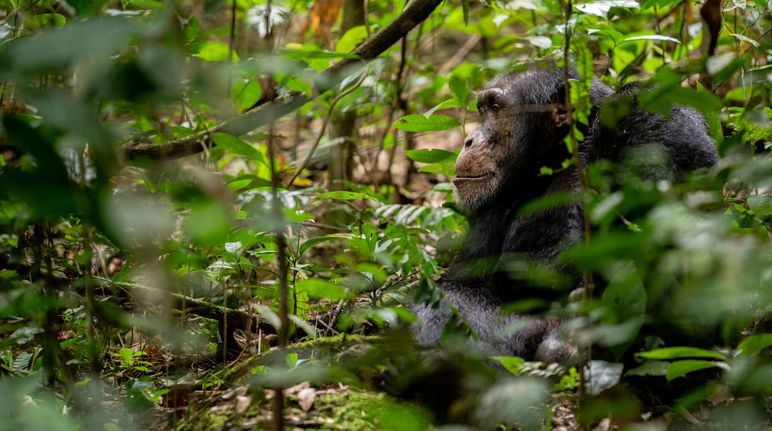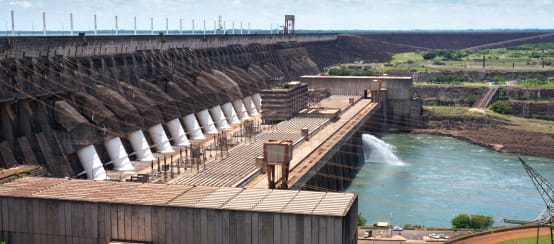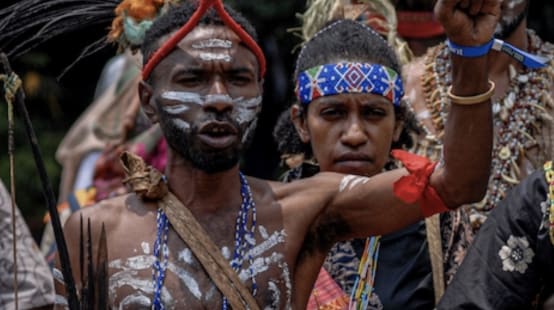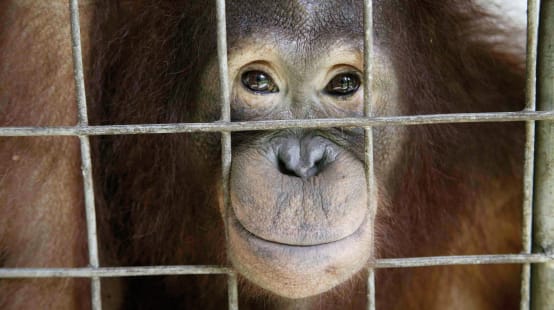West Africa's chimpanzees are on the brink of extinction!
 West Africa's chimpanzees are on the brink of extinction. (© Kalyanee Mam)
West Africa's chimpanzees are on the brink of extinction. (© Kalyanee Mam)
They are our closest relatives, yet we put chimpanzees in danger – even within protected areas. In Guinea, president Condé plans to build a hydroelectric dam inside Moyen-Bafing National Park, home to 4,000 of these great apes, risking the death of more than a third. Tell Condé to cancel this harmful project and to focus on solar power.
News and updates Call to actionTo: the President of the Republic of Guinea and the Organisation pour la Mise en Valeur du Fleuve Senegal (OMVS)
“The proposed Koukoutamba dam threatens people and chimpanzees in Moyen-Bafing National Park. Please cancel this harmful project and focus on solar power.”
Guinea’s highlands are an environmental treasure. Gallery forests and grasslands provide habitat for rare animals like leopards and chimpanzees. Many rivers, including the Senegal, originate in the mountains of Fouta Djallon. Moyen-Bafing National Park is a refuge for 4,000 chimpanzees.
It's here, of all places, that President Alpha Condé plans to build a 294 MW hydroelectric dam in the Bafing river. The flood zone would cover 264 square kilometers – an area twice the size of San Francisco. 8,700 people would lose their homes and lands.
Highly biodiverse forest in the heart of the Moyen-Bafing National Park would be destroyed by the dam, the flood zone and the related infrastructure such as roads and powerlines. The habitat of 1,500 chimpanzees and many other species would be destroyed forever.
The dam project would push the western chimpanzee, human’s closest relative among animals, closer to extinction.
On 26 February 2019, the Chinese Sinohydro group was awarded the contract for Koukoutamba dam. The company is the world market leader in hydropower – and the driving force behind a dam project in Indonesia that threatens to drive the Tapanuli orangutan to extinction.
No question, Guinea is one of the poorest countries and must improve its energy supply. In rural areas, 97 percent of the households suffer from lack of electricity. But the dam project might not help them: three quarters of the produced energy is slated for export to neighboring countries and another big portion reserved for mining companies.
Guinea has an abundant energy source that is easier on the environment and much more likely to benefit rural people: the sun.
Please tell President Alpha Condé to drop the dam project.
BackgroundMore details about the dam
The project would include 150 kilometers of roads and two power lines, 456 and 250 kilometers long, respectively. This would cause damage to areas beyond the dam and the flood-zone itself.
As the World Bank pulled out of the project and will not finance the construction, the government is looking for alternative dam funding. Most likely the money will come from China, as its state-owned energy company Sinohydro has been chosen to build the dam.
The role of the World Bank
The situation is bizarre: Part of the World Bank Group – the International Finance Corporation – was integrally involved in the establishment of the Moyen-Bafing National Park. At the same time, another part of the World Bank was financing the Feasibility Study, and the Environmental and Social Impact Assessment (ESIA) which experts call flawed and misleading as it downplayed the number of affected chimpanzees to not more than 300. Realizing their mistake, the World Bank pulled out of the project.
Chimpanzee offset
Environmentalists and scientists praised Guinea for the establishment of the Moyen-Bafing National Park in late 2017. The protected area is funded by the mining companies Compagnie des Bauxites de Guinée and Guinea Alumina Corporation as a “chimpanzee offset”: These payments give them permission to destroy the habitat of the endangered primates in their mining area. Offsets are meant to be forever, and the placement of the dam inside the park now undermines the idea that this park will protect the chimpanzees permanently.
It would be ironic: mining companies destroy chimpanzee habitat for their operations, and the offset for this destruction would be devastated by a dam that will generate electricity for mining companies.
Organisation pour la Mise en Valeur du Fleuve Senegal (OMVS)
The states Guinea, Mail und Mauritania and Senegal are members of the organization aiming to improve transboundary economic development. This includes the energy sector, predominantly by hydroelectric dams.
OMVS plans to construct 3 hydropower stations in Guinea and Koukoutamba is the largest one.
Links
The Guardian: Chimp sanctuary created by World Bank threatened by World Bank-backed dam
Care2 Petitions: STOP the construction of a Chinese dam that will flood a primate sanctuary!
Wild Chimpanzee Foundation study on the national park (in French)
Organisation pour la Mise en Valeur du Fleuve Senegal (OMVS)
Contact
Dr. Rebecca Kormos Consultant, USA
rebeccakormos@yahoo.com
University of California, Berkeley
IUCN Primate Specialist Group
National Geographic Explorer
To: the President of the Republic of Guinea and the Organisation pour la Mise en Valeur du Fleuve Senegal (OMVS)
Honorable President,
Honorable Haut Commissaire Hamed Diané Semega,
Guinea is home to a unique ecological treasure: Moyen-Bafing National Park, created in 2017. The park is home to 4,000 critically endangered western chimpanzees, making it a stronghold for the survival of this great ape. Guinea thus carries a huge responsibility.
Unfortunately, the proposed Koukoutamba hydroelectric dam threatens the integrity of Moyen-Bafing National Park and puts up to 1,500 chimpanzees at risk - more than a third of the park’s chimpanzee population. In addition, countless other animal and plant species will lose their habitat and 8,700 people will be displaced. People downstream will suffer disadvantages as well. It is unlikely that project will bring much-needed electricity to these rural communities as most of the energy generated would be for exportation and mining.
We recognize that Guinea is a sovereign nation with a responsibility to its own people that includes power generation. But the decision to damage one of your great natural treasures will have a profound and irreversible impact.
Guinea has a much more sustainable energy source: solar power. The advantages are manifold. Solar power causes less harm to the environment, bears less financial and administrative risks and serves the rural population much better.
Yours faithfully,
Hydropower: neither environmentally sound nor climate-neutral

A new international study concludes that hydropower may be a renewable energy source, but that it is neither climate-neutral nor environmentally friendly. According to the study, dams and reservoirs harm biodiversity and contribute little to climate protection.
Where are the chimpanzees of Djouroutou?
For many years, a group of 25 to 30 chimpanzees lived in Taї National Park in Côte d'Ivoire. However, in mid-February, the animals disappeared without a trace. Conservationists fear they may have fallen victim to poachers. The Wild Chimpanzee Foundation (WCF) has launched a search mission to help the authorities stop poaching and illegal gold prospecting.
Situation of western chimpanzees deteriorating dramatically
An action plan to protect western chimpanzees has just been published by the International Union for Conservation of Nature (IUCN). The gist of its findings: our West African cousins are on a trajectory toward extinction unless drastic measures are taken immediately.













 Recent successes
Recent successes